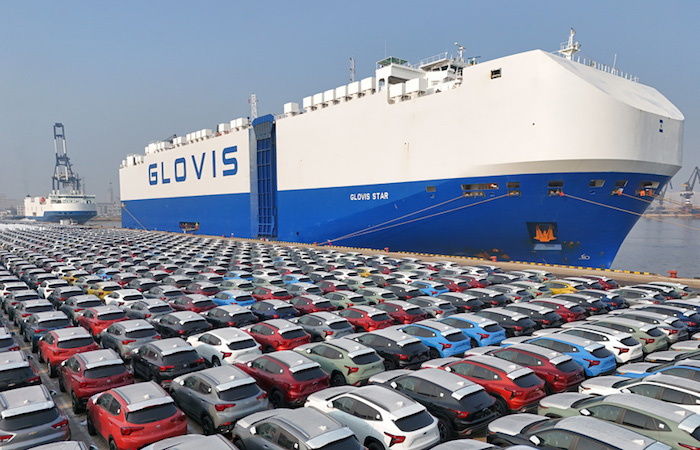Beijing.- China urges Canada to eliminate high tariffs on Chinese electric vehicles, declared the Asian country’s Foreign Minister, Wang Yi, during a meeting with his Canadian counterpart, Mélanie Joly.
“Canada’s imposition of high customs tariffs on Chinese electric vehicles contradicts the spirit of free trade and does not contribute to the healthy development of trade and economic cooperation between the two countries,” said Wang, quoted by the Chinese Foreign Ministry.
The minister added that Ottawa “must adequately comply with WTO (World Trade Organization) rules and eliminate discriminatory restrictive measures against Chinese products.”
Wang also expressed the hope that Canada will consider China’s development objectively and rationally, and do more to promote bilateral relations.
“China and Canada have broad common interests, they do not have a fundamental conflict of interest,” he stressed.
In this regard, the minister highlighted an in-depth exchange of opinions and progress in relations, achieved during the Canadian Foreign Minister’s visit to China last July.
Furthermore, Wang expressed the hope that Canada will be aware of the sensitivity of the Taiwan issue and sincerely respect the ‘one China’ principle.
“The Taiwan question affects the sovereignty and territorial integrity of China, the ‘one China’ principle is a general consensus of the international community and an important component of the order established after World War II (1939-1945) that cannot be questioned,” he stressed.
In turn, the Canadian minister assured that her country adheres to the ‘one China’ principle and strives to develop relations with Beijing.
“We are willing to maintain high-level exchanges with China, properly resolve disagreements, intensify cooperation in multilateral mechanisms such as APEC (Asia-Pacific Economic Cooperation), and work together to solve global problems,” he said.
In late August, Canadian Prime Minister Justin Trudeau announced 100 percent tariffs on electric vehicles and 25 percent tariffs on steel and aluminum imported from China starting October 1. The measure is supposed to make Canada a world leader in the sector.
Regarding the island of Taiwan, Canadian Navy ships periodically pass through the strait of the same name, provoking protests from Beijing.
Ties between China and the island of Taiwan were broken in 1949, after the forces of the nationalist Kuomintang party, led by Chiang Kai-shek, suffered a defeat in the civil war against the Communist Party and moved to that archipelago.
Relations were reestablished only at a business and informal level in the late 1980s.
China’s fundamental policy toward Taiwan is peaceful reunification under the principle of “one country, two systems.” (Sputnik)
Fuente:
eitmedia.mx

